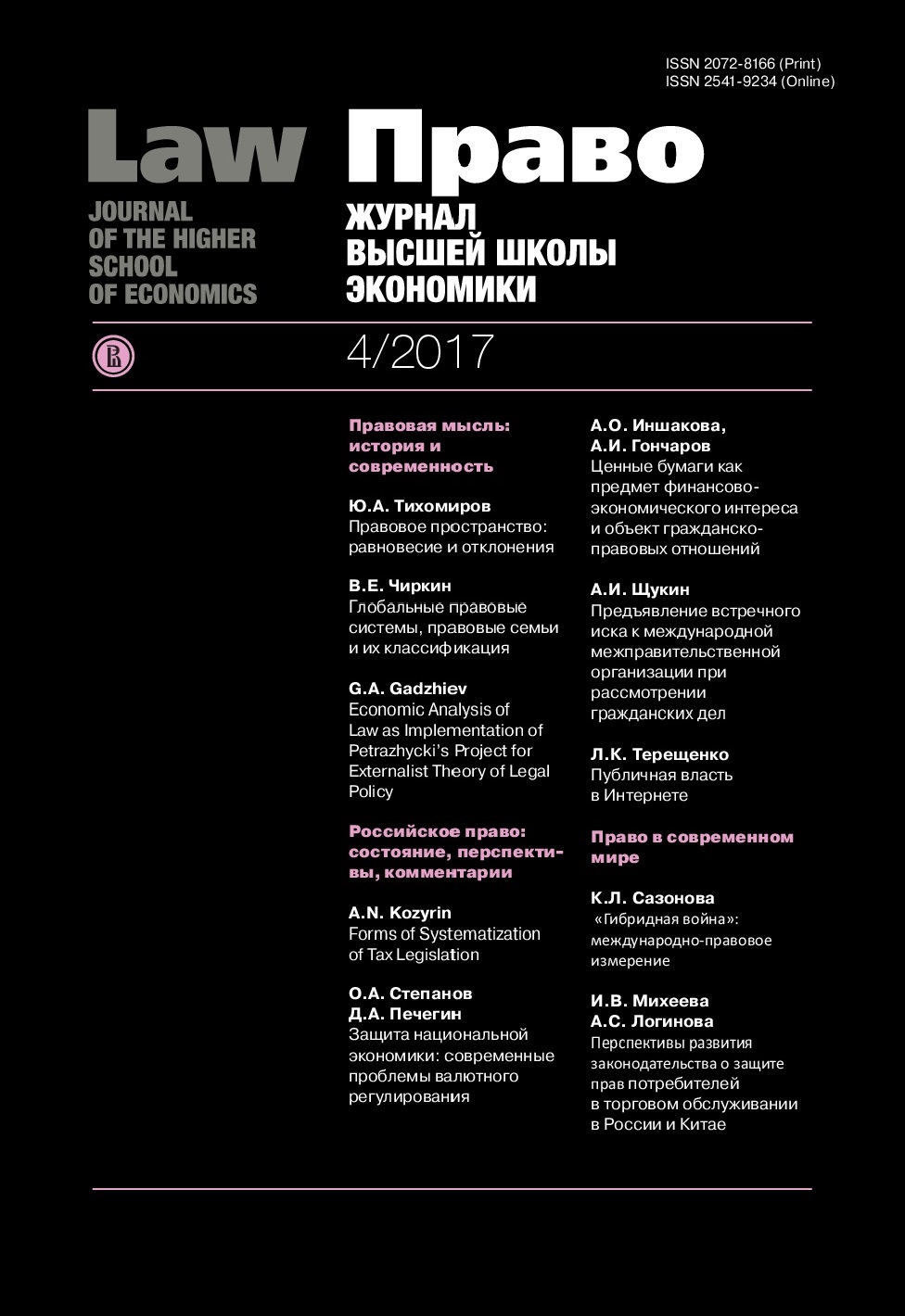The Significance of Fundamental Human Rights for German Tax Law
Abstract
The Constitution of the Federal Republic of Germany referred to as the Fundamental Law containsthe catalogue of basic human rights. The rights specified in this catalogue of law is considered as immediate directly applicable law and is binding for all government institutions, in particular its legislativebranch. Fundamental rights directly concern tax legislation with a special influence on legal andeconomic life of society. The specifics of this branch of law is reflected in the opinions of the FederalConstitutional Court of Germany showing the necessity of strict correspondence of tax legislationfixed in the Constitution by fundamental law. A special focus is given to the fixed in the constitutionright to equality (the principle of charging taxes in proportion to the economic solvency, the principleof objective and subjective net taxation) and other fundamental rights (protection of the right ofproperty, protection of family and marriage). Besides, the laws including the norms of tax law shouldmeet the requirements resulting from the principle of rule of law state specified in the FundamentalLaw. These requirements include in particular the obligatory procedure of parliamentary approval oftax laws and a proper level of legal certainty of a law to be approved and the ban on the retroactiveeffect on tax laws. The paper outlines the German tax law and its sources as well as the system of taxbodies in Germany, classifies taxes by the object of taxation. Then on the basis of analyzing practiceof the German Federal Constitutional Court, Superior Financial Court and courts of general jurisdiction,the paper reveals the relevance of the major laws and the principle of rule of law state for Germantax law concerning natural person taxation.
Published
2017-03-02
How to Cite
ShteberM. (2017). The Significance of Fundamental Human Rights for German Tax Law. Law. Journal of the Higher School of Economics, (4), 216-231. https://doi.org/10.17323/2072-8166.2017.4.216.231
Issue
Section
Law in the Modern World


















